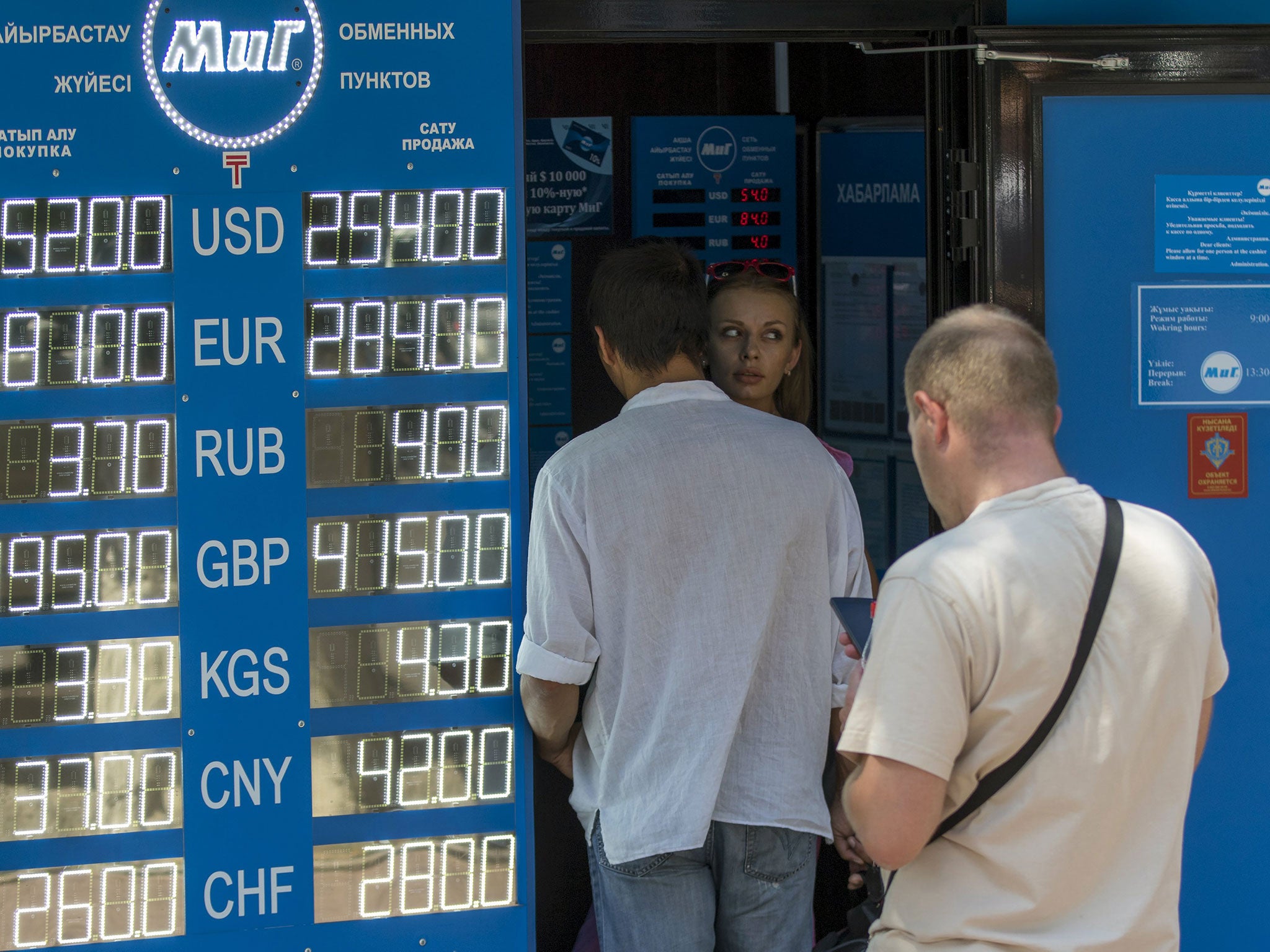Developing world devaluations have sent global stock markets into a funk and stoked fears of an intensifying global currency war.
In response to China’s surprise devaluation of the yuan last week, several emerging market economies have slashed the value of their own currencies to retain their competitiveness.
Kazakhstan’s tenge lost 24 per cent of its value against the dollar after the country’s central bank announced that it would allow the currency to float freely. Meanwhile, South Africa’s rand slid to its weakest level against the dollar in 14 years and Malaysia’s ringgit fell to its lowest level against the greenback in 17 years. Turkey’s lira and the Russian rouble also dropped.
This followed the decision by Vietnam on Wednesday to cut the value of the dong against the dollar by 1 per cent, the country’s third devaluation of the year. Since Beijing’s yuan devaluation last week, an index of 20 developing-nation exchange rates has been falling fast.
The ructions depressed the FTSE100, pushing the index down into technical “correction” territory, more than 10 per cent below its April peak. Year-to-date, the benchmark index of UK-listed shares, is down 2.9 per cent. The S&P 500 also quickly fell 1.2 per cent after trading opened in America, wiping out all of the US index’s gains made this year.
Last week, the People’s Bank of China caught markets napping by allowing the yuan to fall in value against the dollar by 4 per cent in two days. The perception that the world’s single biggest customer for raw materials is in economic difficulties has stoked fear over the prospects of big commodity producing economies like Kazakhstan, Russia, Brazil, South Africa and Malaysia. The slumping global oil price has also hammered investor confidence in the prospects of the big energy exporters.
“The appearance of China weakening its exchange rate to boost growth has added urgency for policymakers elsewhere to do what they can to grab more export revenue” said Koon Chow, of Union Bancaire Privée.
Many analysts expect further global devaluations if the US Federal Reserve, as expected, increases interest rates for the first time since the financial crisis later this year. “Emerging market currencies, in general, still have high devaluation risks” said analysts at CrossBorder Capital. Analysts predicted the likes of Egypt and Nigeria could be next to devalue their currencies.
Per Hammarlund, of Sweden’s SEB, said Kyrgyzstan, Turkmenistan and Tajikistan could allow their currencies to depreciate by between 10 and 20 per cent. “They simply don’t have much of a choice but to follow Russia and emerging markets more generally,” he said.
Capital has been flowing out of emerging markets at a rapid rate this year, as fears rise of a sharp slowdown in the former stars of the global economy. Over the past 13 months $1 trillion is estimated to have flowed out of the 19 largest emerging countries.
The International Monetary Fund expects global growth among emerging markets and developing economies to be just 4.2 per cent this year, the weakest output growth since 2009.
Nariman Behravesh, of IHS Global Insight, said emerging markets are arguably facing “the toughest environment since the Asia Crisis of the late 1990s” and predicted that they will drag on global growth into next year.
Subscribe to Independent Premium to bookmark this article
Want to bookmark your favourite articles and stories to read or reference later? Start your Independent Premium subscription today.


Join our commenting forum
Join thought-provoking conversations, follow other Independent readers and see their replies